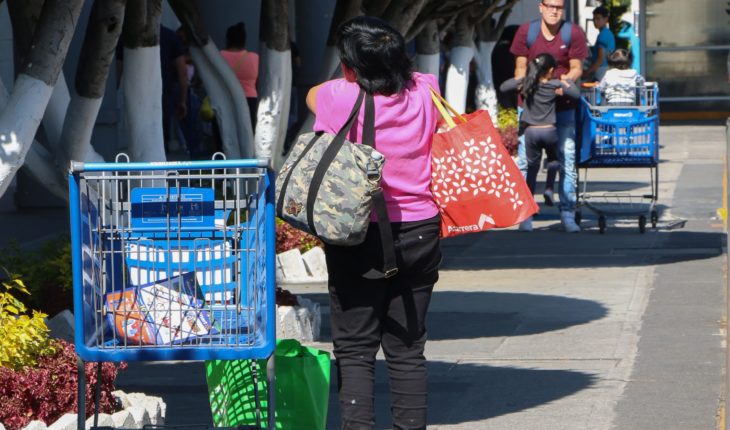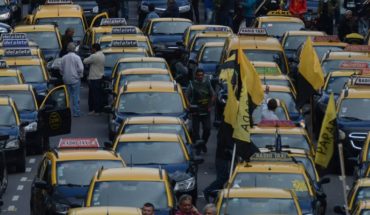Since 2020 in Mexico City, the marketing, distribution and delivery of disposable plastic bags has been prohibited. The legislation that entered into force on 1 January provides for several sanctions for businesses that do not abide by the order.
Therefore, so bags called “ecological” began to gain ground because legislation states that bags of fabric, jute, rafia (costal type), woven plastic or mesh are exempt from the prohibition; as long as they are durable and can be reused multiple times.
For the above, Sedema specifies that the minimum content of such products must be 50% post-consumer recycled material and 100% recyclable, and should be integrated into a management plan that guarantees their return to the production processes for recycling.
Read: Law Banning Bags in CDMX operates with provisional rules, for now there will be no fines
However, Gabriela Jiménez Casas, ecolog and director of the Institute of Ecology (IE) of the National Autonomous University of Mexico (UNAM) explains that the bags that sell us in the super are also not so ecological because they use harmful pigments and in the end of the day they may become a problem.
Miguel Rivas, specialist from Greenpeace Mexico also pointed out his concern in this regard because he points out that “the bags that are being proposed as reusable items such as those of propylene and that are being sold in the supermarket are of very poor quality, they are going to break very quickly and will be more of the same because they are going to end up in the trash”.
“Bags sold as eco-friendly are not environmentally friendly at all,” says Rivas, who says they don’t say what they’re made of or how many times they should be used to offset their environmental footprint, and that information should be minimal before selling a product as eco-friendly.
The expert points out that the best option now is to use a cloth bag, if possible it is recycled cotton. If you can reuse the fabric of old clothes better. “That people look for options of durable fabric but also sustainable because the textile industry also does not lay behind in the terms of the pollution it generates,” he said.
“It’s not about finding who’s the least bad, it’s about reusing as many times as possible. If I accumulate at home 10 bags because whenever I go to super I forget and buy another, those bags stop being ecological and become another pollutant”, he stresses.
Bags aren’t the only plastic that exists
Miguel Rivas says that the fine proposed by the government of the capital is the instrument to generate the habit in the shops that are still thinking that they can give stock market and nothing will happen to them. “It is a measure to make them understand that the legislation is to be enforced.”
According to Rivas, it is a significant step forward that people understand that they cannot demand disposable bags as part of customer service because it generates waste, “this is pollution and that affects all of us not only citizens but also entrepreneurs and businesses”.
Find out: CDMX merchants will have up to 15 days to stop using bags before being sanctioned
Gabriela Jiménez of IE, explains that the plastic bags emerged as a necessity and were increasingly used until an excessive abuse was made “We cannot cut this type of use of bags because there are needs that will not be replaced, such as the food and medical sector”.
But the plastic problem goes beyond bags as bottles, disposables and other waste also affect. For the specialist the use of excessive plastics is terrible and must be stopped, it shows that these are the three plastic islands that float in the oceans that affect plants and animals.
The expert says the use of plastic bottles began from the 1985 earthquake because the city was in chaos and there was no access to safe drinking water. Then many companies that did not sell water donated their containers so that they could be filled with water and brought to people who needed it and who could not access it otherwise.” It got out of hand because we got back to normal but people got used to drinking bottled water,” he says.
According to The Sedema will be until 2021 when all single-use plastic items such as cutlery, mixing sticks, plates, poopes, cotton swab swabs, balloons, rods, glasses, lids, trays and tampon applicators are also banned.
“We did it in two parts precisely as a deal with the plastics industry because they needed this transition step to adapt to the new provisions. In January 2021 the rest of the single-use plastics such as pots, balloons, coffee capsules and all the plastic we used only once and goes to waste. That’s the amount of garbage we want to disappear,” says Andrée Lilian Guigue Pérez, Director General of Impact Assessment and Environmental Regulation at Sedema in Mexico City.
You may be interested: Farewell to plastic bags: Queretaro prohibits delivery in shops and supermarkets
According to the Sedema, the Mexican capital generates about 13 thousand tons of garbage daily, of which 8 thousand 600 tons are sent to landfills and only a thousand 900 tons go to recycling.
How can I contribute?
For the UNAM specialist, the way we can treat that plastic is to reuse it. Reuse bottles and bags.
“You have to balance and analyze carefully which is what is best to do because returning to paper bags is not an option. What’s going to happen to the trees? We go back to the same thing, it’s an excess and it’s an abuse of resources,” he said.
According to Jiménez if the ant robberies eventually see the loss, “these actions are ant actions and in the long run the profit will be reflected”. The eco-friendly company points out that we get used to the excessive use of plastics and what is needed is a re-education that will take many years.
Among the alternatives he suggests are recycling T-shirts, denim and making bags, “but it’s important that we’re willing to invest the time to make them at home, and if we’re going to buy them we don’t have to abuse them,” he says.
According to Miguel Rivas citizens we can do many things like stop preferring those products that come about packed and leave a little comfort aside.
“We have to understand that we have to make a sacrifice that is probably time and comfort but we are also paying for it with the environment, with planet, with future for our children, relatives, and other species,” he warned
For him, the most important thing about this new legislation is that it is understood that there is a change in the consumption dynamics and that citizens are willing to do things like buy in bulk, carry a container, fill water bottles and buy in local markets, because that helps a lot so that the model can be changed.
What we do in Animal Político requires professional journalists, teamwork, dialogue with readers and something very important: independence. You can help us keep going. Be part of the team.
Subscribe to Animal Politician, receive benefits and support free journalism.#YoSoyAnimal
translated from Spanish: Why ‘green’ bags are not environmentally friendly
January 18, 2020 |





